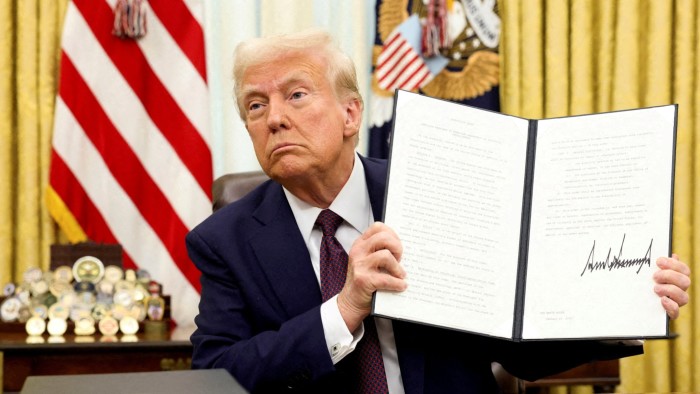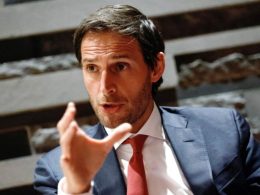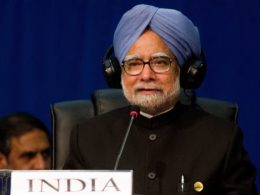Unlock the White House Watch newsletter for free
Your guide to what the 2024 US election means for Washington and the world
The writer is co-director of the UK’s Bennett Institute for Public Policy, University of Cambridge
It’s hard to imagine Donald Trump settling down of an evening in the White House to read a stack of policy reports from academics and think-tanks, unlike some of his predecessors. Indeed, the US president seems intent on inflicting serious damage on American academics’ ability to continue to do research, with multiple executive orders undermining its leading scientific institutions.
And he is not the only one. An increasing number of leaders around the world seem to care little for evidence and policy analysis when it gets in the way of politics.
For institutes such as ours, or for policy analysts in the new US government, this raises challenging questions. Our day-to-day business has been developing research-based evidence, communicating the findings to decision makers and instilling this reasoned approach in future generations of politicians and officials. Even in the somewhat calmer political waters in the UK, the polarisation of views in so many areas is becoming tricky to navigate.
Many researchers consider themselves simply to be solving practical problems; economists for example are keen on comparing themselves to plumbers or dentists. But few policy questions are the kind of well-defined issues this comparison implies. Instead we need to acknowledge the role of values and trade-offs. How might policy advice about quantitative easing or Covid vaccinations have been moderated by a broader understanding of the non-monetary or non-epidemiological aspects?
The tension between what politicians want to do and what the evidence seems to support is nothing new. Ever worldly-wise, John Maynard Keynes once said, “There is nothing a government hates more than to be well-informed; for it makes the process of arriving at decisions much more complicated and difficult.” Claims that “what the science says” should dictate policy choices were strongly challenged during the pandemic, for example.
Yet until very recently, the idea of evidence-based policy was ascendant. Even now some policymakers and researchers are redoubling their emphasis on it: one recent report argued for governments to start spending some tens of millions of pounds on policy evaluation.
What is new, though, is not just the absence of any pretence by some politicians to care about reality-rooted analysis but their outright hostility to evidence-producing institutions. Views have become strongly and broadly politicised on wide-ranging questions such as the environment, meteorology, public health, urban planning and much of economic policy. Even data collection, without which no evidence base is possible, appears to be vulnerable, particularly in the US.
How should we respond? I think there are two adjustments those of us who practise and teach policy analysis need to make.
One is to remember our limits. Too often — in the sciences and in economics — conclusions about the “right” policy decision to take have ignored the values and political judgments inevitably involved. Contrary to the claim once made by Milton Friedman, positive analysis (what is) cannot be separated from normative claims (what ought to be). Unfounded certainty about policy recommendations has damaged public trust.
The second is to orientate our advice less towards influencing officials and politicians — gratifying as it is to have access to the centres of power — and more towards public engagement. The public sphere is where policy decisions are debated and ultimately legitimised. This must be a reciprocal process — what I once heard referred to as “communicating with your ears” — rather than just deploying a bigger megaphone.
One of the most striking social fractures in countries such as the US and UK is the chasm in life chances and views between those with a degree and those without. But if universities were ever ivory towers, that is certainly no longer the case; what we do and say is part of what is now being so strongly contested.
So, although I disagree with many of Milton Friedman’s views, this advice seems spot on: “Only a crisis — actual or perceived — produces real change. When that crisis occurs, the actions that are taken depend on the ideas that are lying around.” By all means let’s continue producing evidence, but we must also ensure a plentiful supply of ideas about what serves the public good, for the time when they are once again in demand.
Source link









